Here, we celebrate global Bears by sharing stories of former international students as well as U.S.-born graduates who now work around the globe. We also give you some facts showcasing our commitment to culturally competent students and graduates.
See you in Springfield, São Paulo, South Africa, Shanghai, Sweden, Sydney — or wherever the world takes you!
‘Don’t give up, Do Won. Don’t give up.’
Do Won Hahn once lived in a refugee camp. Now, he has an address in a posh central Florida neighborhood where Tiger Woods once resided. Hahn has gone from a homeless teen to a lauded scientist who helped create pharmaceutical drugs used around the world. His journey to the United States started when he began corresponding with a legendary faculty member at Missouri State.
A dangerous escape
Do Won Hahn was born in 1931 near the Yalu River, an aquatic border between North Korea and China.
“I read the Korean news every day and think of you and what it may mean to you. … It is a sad world just now but after darkness there always comes a dawn.”
He was born on the Korean side during a time when Korea was a united land ruled by Japan. However, at the end of World War II in 1945, the peninsula was divided into North and South Korea. The North was occupied by the Soviet Union, the South by the United States.
“All the communists came to North Korea and tried to establish a new government,” Hahn said. “They tried to indoctrinate all young people to communism … so I looked for a chance to escape to South Korea.”
Hahn was just a teen in 1947, a time of fear, hunger and unrest for him. He left his home and family behind and, with another boy, took a dangerous journey by foot to the South.
“I couldn’t believe I took that kind of risk. If I had been caught, I could have been taken to prison.”
But he wasn’t caught — instead, he ended up in a United Nations refugee camp. From there, he took a train to Seoul, South Korea. He supported himself by working as a street vendor while attending high school.
But he was determined to attend college — he just didn’t yet know where, or, more importantly, how.
A long-term struggle
After earning his high school diploma, Hahn thought higher education was out of his financial reach until his American colleagues told him about scholarships and other opportunities.
“I feel so helpless and I do so want to help you.”
“I wrote letters to colleges in all 50 states,” Hahn said. He was shocked by the responses: Many not only encouraged him to apply, but said he would receive financial aid.
The process of obtaining the necessary materials — including a passport, a student visa and evidence of a sponsorship and financial support from America — took tenacity and the help of a classmate’s father who was a government official. All told, it was a two-year ordeal.
“To get just one signature took me three months,” Hahn said. “I was very persistent because I knew I was going to get an education, and going to America was my only chance. I surprised myself, actually, when I look back now.”
A dedicated advocate
Documents finally in place, Hahn was ready for the U.S.
One college was his top choice.
“I think we have succeeded in making the necessary arrangements for you to study here at the College. You need not worry about causing me any ‘trouble.’ I do so much want to help you to carry out your plans to be of service to your country and your people, so that whatever I do is done with joy.”
Dr. Anna Lou Blair, the foreign student advisor of what was then Southwest Missouri State College, had been writing to Hahn regularly after receiving his first letter.
“She wrote me at least one letter every month, saying: ‘Don’t give up, Do Won. Don’t give up. I am going to extend the deadline, I am going to get the scholarship, no matter when you can come,’ ” Hahn said.
Blair wrote to him about a room donated for his use, a job, free hot meals, a full scholarship. She sent him papers he needed for the U.S. Consulate and assumed personal responsibility for his travel arrangements. She lamented when a letter to him bounced back to her, and rejoiced in 1953 when a truce was called in Korea.
And she was the person who greeted him at the bus station in the spring of 1955 when he arrived in Springfield after a three-day trip from Korea. He had only a carry-on bag and $8 to his name.
She took him to her house, where he would live temporarily.
“She made me a sandwich and grape juice. That was my first lunch in Missouri. It was delicious.”
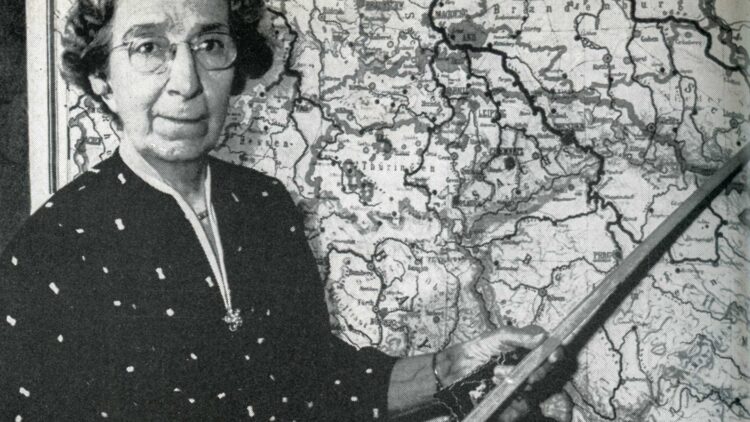
A heaven in the Midwest
Hahn quickly grew to love life in Springfield.
“Here I was coming from a war-torn land with burned-out buildings and shell-shocked people, to an enchanting college campus with plenty to eat and a comfortable bed in which to sleep,” Hahn wrote in memoirs he shared with Missouri State. “Even though I was attending classes by day and holding down three different jobs … I didn’t care. This life was heaven … and I had just left hell.”
He was one of just five or six international students on campus, and he joined the Cosmopolitan Club — a student organization co-founded by Blair in 1954 to promote understanding of life in other countries.
“Every time I think of you, I feel glad that you are in such pleasant surroundings.”
“Everybody was so friendly,” Hahn said of the American students and faculty. “They invited me for dinner at their homes.”
Hahn attended Missouri State from 1955 to 1957. One summer during those years, he worked at a Christian camp in Michigan established by William H. Danforth, founder of the Ralston Purina Company.
Danforth and Hahn became friends, and their talks combined with prayer convinced Hahn to “dedicate my life to some higher good.” He wanted to help Korea by improving farming methods, and knew this meant he needed to study agricultural mechanics.
“At the time, Southwest Missouri State didn’t have that program,” Hahn said. He said good-bye to his Springfield friends as he transferred to Michigan State University.
A phenomenal career
Hahn earned a bachelor’s degree and a master’s degree in agriculture-related fields from Michigan State.
During that time he was dating a woman named Kim, who had also come to Missouri State from Korea with the help of Blair.
They kept up a long-distance relationship as she went to graduate school at the University of Missouri.
They married while she was earning her master’s degree, which brought Hahn to Columbia, Mo., in 1963.
He was expecting to spend six months there. To fill that time, he took a course in endocrinology — the branch of medicine that deals with hormones.
To say he was good at this new field would be an understatement. After the course, the professor offered him a research assistantship.
Hahn thought about the uncertain political climate in Korea. He decided to stay in Missouri and earn a PhD.
That decision may have changed the face of medicine. In 1968, Hahn took a job with Ortho Pharmaceutical orporation, a subsidiary of the Johnson & Johnson company that focused on reproductive research.
He evaluated current drugs and recommended new approaches to making drugs.
One of his major accomplishments was the discovery and development, by himself and his colleagues, of norgestimate — a molecule used in contraceptives.
“Norgestimate did not disappoint anyone,” Hahn wrote in his memoirs. “It went on to become the largest-selling contraceptive in the U.S. (under the trademarked name Ortho Tri-Cyclin).”
He also worked on research projects that led to the development of a drug for precocious puberty, a childhood disease.
By the time he retired in 2002, he had been promoted to Johnson & Johnson’s highest scientific position and won the company’s most prestigious awards. He was recognized around the world as a leading figure in contraceptive and reproductive science.
A tribute to his U.S. patron
Back in Seoul in the 1950s, Hahn remembers hearing artillery fire all night. There were times he thought he would die from malnutrition.
Blair started him on a path that allowed him to leave that world behind.
“I appreciated the stamps you sent, very much. That was thoughtful of you. And the nameplate that came just yesterday is simply beautiful. I am very grateful.”
“I always thought about Dr. Blair, and thought: One day, if I have money, I will establish a scholarship in her memory. I wanted to remember her and her kind, friendly ways and dedication to helping underprivileged students.”
In 1996, he founded the Anna L. Blair scholarship at MSU. It awards about $1,000 each year to five or six undergraduates who are majoring in a foreign language.
And that’s not all: One of his three children, Anna, is named for Blair. Hahn also has a son named Charles and a daughter named Helen. All three are college graduates in professional jobs.
When he left North Korea, Hahn didn’t know when he would return or what would become of himself or his family. In 1990, he went back for a reunion. His parents had passed away, but he was able to reconnect with others.
“I think about how sad it is my parents never got to see how successful their son had become. I truly believe that somehow, though, they knew I was doing well.”
When he thinks about his legacy, he thinks about sacrifices, hard work, contributions to humanity — and, most important to him, a caring and close family.
“I am truly a happy man.”
‘One thing we have to never forget: The favor Dr. Meyer did’
A health crisis led John N. Akwar, a student from Cameroon, to ask for assistance from then-University president Dr. Duane Meyer — and the legendary Missouri State figure made such an impression that Akwar named his son Duane.
John Akwar had a dream of studying agriculture overseas to improve his career prospects, but he knew that meant he would have to leave his wife and three children in Cameroon.
“He said, if my wife is the solution, he would do everything to get her here.”
He earned a scholarship to Missouri State in the 1970s, which brought him to the U.S. for the first time.
“One day I went to Taylor (health clinic) and the doctor who took my blood pressure said it was through the roof,” Akwar said. “It was so extremely high, he was scared I might not make it through the week. I asked, what is the likely cause of this? They told me it was worry and stress. I said, only my wife can bring it down.”
Dr. Duane Meyer had been the director of the MSU international student group at one point, and as president he made sure to meet most international students on campus.
“We just enjoyed being around them, and would have international students to the president’s residence at least once a year,” Meyer’s wife, ’Lyn Meyer, said. In addition, the couple attended the same church as Akwar.
Those ties gave Akwar the chance to talk with Meyer about his health scare.
“He said, if my wife is the solution, he would do everything to get her here.”
The process started with writing letters and making calls to consulates and the State Department.
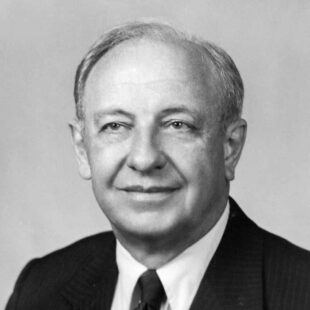
“My secretary at the time had experience as an attorney’s secretary,” Meyer said. “I asked her if she could examine how many requirements had to be met to bring his wife to the United States. She did the research, then I prepared a letter, which I sent to the U.S. Department of State, explaining that we had John as our student and we would love to have his whole family and we hoped that they would permit her to come.”
Thanks to these efforts, Bridget Akwar was eventually allowed to join her husband in Missouri — and, indeed, Akwar’s blood pressure and stress levels went down. While he was still a student at MSU, they found out they were going to have another child.
“I told her, well, there is one thing we have to never forget: The favor Dr. Meyer did,” Akwar said. “We have to name this child after him to commemorate this kind gesture. If it’s a boy, we name it after him; if it’s a girl, we name it after his wife.”
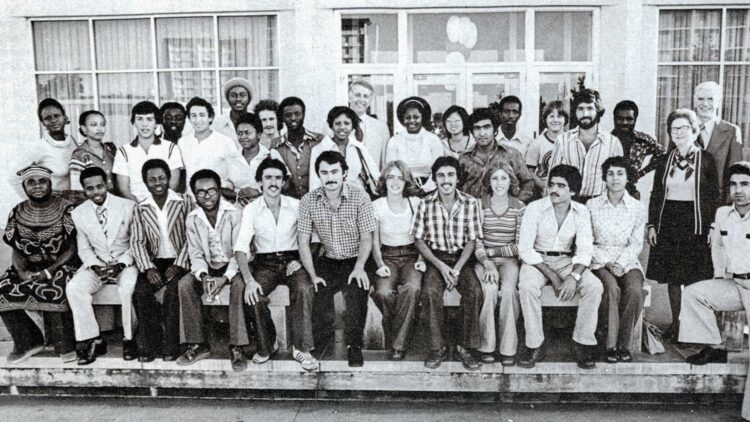
Duane Akwar was born before John Akwar graduated in 1980 with a bachelor’s in agricultural economics.
After that, the family relocated to Texas, where Akwar earned a master’s degree in agricultural economics. Next, they went back to Cameroon where he worked in agri-business for 10 years. In the mid-1990s, seeing political instability in their home nation, the Akwar family returned to the United States.
Akwar has lived in Houston and worked in the Texas criminal justice system ever since. He and Bridget raised a total of five children together — who are now doctors, nurses and teachers — before she passed away in 2005.
By pure coincidence, the Meyers now also live in Texas, in the Dallas area.
Last year, the two families were able to see each other for the first time in years. Duane Akwar was graduating from medical school, and John Akwar wanted Duane and ’Lyn Meyer to be part of the celebration.
“We decided we would go to the commencement to show our appreciation for him,” Meyer said. “It feels very good to be associated with such a high-achieving young man.”
John Akwar said Duane, who is married and has a baby, was glad to see the former MSU president for whom he is named.
“I was so pleased they were able to make it to the graduation,” Akwar said. “I had the opportunity to tell them how they have been so useful to our family.”
MSU education ‘lets me have the responsibilities I have today’
Chile native Gonzalo Vargas came to the U.S. for undergraduate and graduate studies at Missouri State, and is now the finance director for Groupon Latin America.
Gonzalo Vargas visited seven universities after he decided he wanted an education in the United States.
He could have skipped six.
“If I was 18 again, I wouldn’t have visited the other places. I would have gone directly to Missouri State.”
Vargas, who is from Santiago, Chile, came to MSU in 2001 to study politics and international business. Outside of class, he played intramural soccer and was involved with the International Student Association.
Vargas came to MSU without knowing anyone: “I had no family or friends here — I had to be brave!” However, students and University community members “invited me to dinner and out at night.”
That the MSU community wanted to make Vargas feel welcome makes sense to Steve Robinette, associate vice president for international programs.
“The first time I met Gonzalo was in spring 2013 at a recruiting event in Santiago at our partner school, the University of Andres Bello,” Robinette said. “He’s the kind of guy you want to hang out with. He’s extremely competent with great business skills, but he also has a free spirit and is fun to be around.”
Vargas liked MSU so much that after earning his bachelor’s in 2004, he stayed for graduate studies. Former MSU political science professor Mehrdad Haghayeghi, who now works for the U.S. Department of Defense, helped Vargas earn a graduate assistantship.
“I had no family or friends here — I had to be brave!”
“He was very inspirational to me, because he had a similar background of being from somewhere else,” Vargas said. “He was Iranian, and came to school in the U.S. … He would say anytime you need anything, come back — not only in terms of school, but in terms of my personal life. I probably wouldn’t be where I am today if he had not done that. He was the first one to believe in me in the United States.”
As a graduate assistant, Vargas helped teach courses in American democracy and comparative politics. He earned a master’s in global studies, with an emphasis in international economics and business, in 2006.
After that he held U.S.-based jobs in the finance sector, managing portfolios and analyzing accounts.
About three years ago he took a job in Santiago with Groupon, one of the major players in online deal-of-the-day coupons. Vargas is Groupon’s finance director in Latin America, which means he has a leadership role in managing assets for the company in eight countries.
He travels extensively to places such as Argentina and Brazil. He also goes to Groupon’s corporate offices in Chicago, ensuring he maintains ties to the U.S. and practices his three languages: Spanish, English and some Portuguese.
“My Missouri State education definitely aided me, because I have both the U.S. background and Latin American background. This lets me have the responsibilities I have today.”
Robinette said Vargas is becoming an unofficial Missouri State University ambassador in Chile.
“At our event in Santiago, he talked about what it meant for him to go to MSU and how he’s a young alum who parlayed his MSU degree into his current success. All the students there sat in rapt attention. Since I met him we have emailed back and forth, and he has become a real resource for us as we talk about how Missouri State can be involved in Latin America.”
‘It was my dream to finish my master’s degree’ in the U.S.
Fen Fu, from China, spent a year on campus in the Executive Option Master of Business Administration program. Dr. David Meinert, EMBA program director, says Fen is “definitely a proud Missouri State Xióng (Bear).”
Fen Fu left a husband and daughter in her home of Guangzhou, China, for about a year to pursue a graduate degree in the United States.
“The EMBA students are really special. It’s a sacrifice to come over here, to leave jobs and families and complete a graduate program — especially in a second language.”
“It was hard because I had never left for so long, but my husband supported me and encouraged me to do what I want to do. It was my dream to finish my master’s degree, and I could not have done it without his assistance,” Fen said.
Fen came to Missouri State in 2010 to join the Executive Option Master of Business Administration program, known as EMBA. The EMBA uses an accelerated format, so students may complete the 33 credit hours in just one year. It was created in 2007 specifically to meet the needs of working Chinese professionals. During the program, students take 11 consecutive four-week courses, interact with guest speakers, take field trips to businesses, learn about the state and regional economy, and participate in social events. The goal is to give them a rich learning and cultural experience.
“The EMBA students are really special. It’s a sacrifice to come over here, to leave jobs and families and complete a graduate program — especially in a second language,” said Dr. David Meinert, associate dean in the College of Business and director of the EMBA program. “We make sure the program provides a well-rounded foundation to advance their careers.”
Fen, who earned a bachelor’s degree in 2001 from the South China University of Technology, learned about Missouri State while exploring options for foreign study.
“Fen saw the EMBA as a way to differentiate herself in her career,” Meinert said. “A big part of the degree is learning what it is like to live abroad, especially in the U.S., since many Chinese companies want employees to have a good working knowledge of the English language and American culture.”
Fen explored outside of the classroom by becoming a football fan, cooking new recipes, shopping around Springfield and studying the Bible at a local church.
But she was here for academics first, and said the program built her confidence while showing her a different style of teaching: In her previous courses, she said, most teachers presented information to the students. In the EMBA, faculty encouraged students to speak out, share their opinions and give the Chinese perspective on economics and marketing.
“That was an adjustment! At first, I was silent and did not say much.”
But Meinert, who taught Fen’s first class — a course in project management, the field in which she now works — encouraged group work, discussions and presentations. Fen began to open up and show her personality.
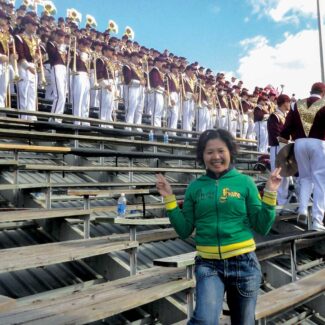
Fen, for her part, considers Meinert an inspiring leader. “I remember at the end of the class, he invited all the students to his house to have a big meal. That was really nice.”
Fen is now back in China, working as a project manager for an interior and landscape design company. She was happy to return to her husband, Jackey, a product designer, and daughter, Cindy, 8, (who might follow in her mother’s footsteps and visit the U.S. one day — she just won third prize in a national primary school English competition).
She and Meinert keep in contact through email and MSU events in China.
“When I saw Fen at the alumni reception in Shenzhen, I talked to her about being in the alumni magazine and her eyes lit up,” Meinert said. “She is definitely a proud Missouri State Xióng (that means Bear). It goes to show, you can be a Bear anywhere.”
Fen, who graduated in 2011, said she’ll always remember the pretty campus with its colorful flowers, the autumn weather and the kind professors.
“When I left Missouri State I cried with my friends, but my family is in China so I am glad to be at home! Missouri State is a really good memory.”
What is the one place you would tell other alumni not to miss?
“I would recommend visitors from the U.S. see the important cities of China first, since the cities have the different, happy energy of their people and show the development of China. Some of my favorites are Beijing, Shanghai and Guangzhou, three of the biggest cities of China.”
Missouri State has partnerships with universities in:
- Australia
- Bosnia
- Bulgaria
- Brazil
- Chile
- China
- Colombia
- Czech Republic
- England
- France
- India
- Japan
- Mongolia
- Slovenia
- South Korea
‘I look at the children and am amazed by them’
Justine Otte (far left in the photo), a former MSU student-athlete, met her husband after college when they both played in the Chicago Field Hockey Club. After they married, she moved to his native Germany and now teaches elementary-age students.
When Justine (Schramke) Otte stands in front of her classroom, she looks into the bright young eyes of students from around the world and listens to them switch from Korean to German to English in three sentences to three different classmates.
“As someone who lived in the States most of my life, I look at the children and am amazed by them,” said Otte, a fourth- and fifth-grade homeroom teacher at Frankfurt International School in Germany. “All of them are bilingual, and many speak three to four languages.”
Otte, who graduated in 2001 with a bachelor’s degree in marketing and in 2003 with an MBA in marketing management, loves creating new experiments and projects for her students.
“I didn’t realize what it was like to be poor in America until I was in a classroom pouring my heart out to 32 kids, trying to save their lives.”
“Teaching at an international private school is different than teaching in the U.S.,” Otte said. “Our curriculum is inquiry-based, which means we have to find ways for students to discover the information themselves rather than telling them. It means that the classroom is your masterpiece.”
Otte found her way to Germany through her now-husband, Moritz, a German native. She met him through her first love — field hockey — when they played in the Chicago Field Hockey Club. Field hockey is also what led her to teaching, and, before that, to Missouri State — she was a member of the MSU field hockey team.
“When I graduated, I was gung-ho about going into the business world,” Otte said. “I worked for a small start-up in the sports world and then for a TV network in Chicago, doing corporate America in a high-rise building, climbing the corporate ladder. But I reached a point and realized it wasn’t for me; I was sacrificing some of my personal values for the job.”
Otte realized she was happiest when she was playing and coaching field hockey, and that a lot of what she loved about coaching she could find through teaching.
“Coaching field hockey and teaching are similar; they both require creativity and helping people.”
She was accepted into the inaugural class of the Chicago Teaching Fellows, a competitive, alternative certification program for people changing careers. It places graduates into high-needs schools. Otte went through an intensive six-week boot camp, then was placed into an inner-city seventh-grade classroom.
“It was a sink-or-swim experience. It opened my eyes to a whole other part of the country. I didn’t realize what it was like to be poor in America until I was in a classroom pouring my heart out to 32 kids, trying to save their lives.”
Otte said that as odd as it may seem to have a business education and become a teacher, her experiences in the College of Business at Missouri State helped her succeed in the classroom.
“Through the process of learning, studying and understanding business, you realize that almost everything you do is a business,” Otte said. “Running a classroom is a managerial project — you plan it, you design it.”
Otte spent much of her time on campus immersed in the world of student athletes. This led her into an internship and, later, a graduate assistantship in the athletics development office. One of the main ways she stays connected to MSU today is through contact with former colleagues in athletics development.
“Justine has the qualities that I knew would make her successful when she left Missouri State, and she has proven that,” said Brent Dunn, vice president for University advancement and former director of athletics development.
Today, Otte spends less time on the hockey field and more time caring for her 2-year-old daughter, Juliet, and 7-month-old son, Jasper. She’s currently on maternity leave, but looks forward to returning to teach fourth grade.
“It’s the children that make you want to get up and go to work,” Otte said. “It’s those excited, bright-eyed little people that greet you every morning and have these huge expectations for you.”
What is the one place you would tell other alumni not to miss?
The Rheingau region. “Located just outside of Frankfurt, the Rheingau region is where the grapes for riesling wines are grown. There are castles and vineyards. It’s a very beautiful place.”
Where students went in 2012-13
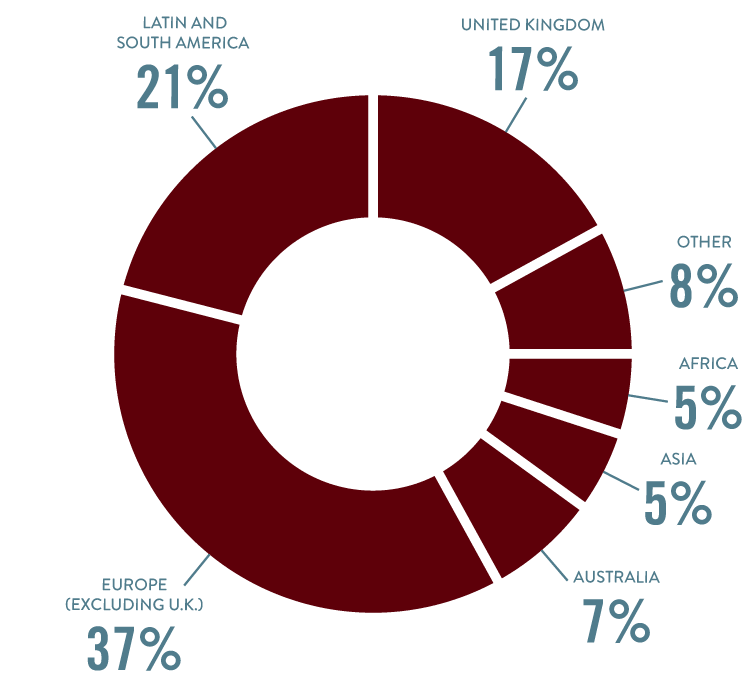
‘I feel I really am helping build a safer China’
Brad Patton studied in China, fell in love with the country and now manages a company that rents workplace equipment to major manufacturers. He’s in Shanghai — or, as he calls it, “the greatest city in the world!”
In 2005, Brad Patton had a decision to make: His three roommates were planning study-away trips to cities in Europe and Australia.
“I thought, geez, my whole house is going abroad. Being independent, I went over to the Study Away office to see where I could go that was different.”
“I remember when he got back from China he was super-excited and had story after story; he was really impressed.”
He heard about MSU’s China program. “I thought: If I don’t go now, I never will.”
While at MSU’s partner school of Qingdao University, he took Mandarin classes, immersed himself in the culture and made friends.
The place got into his blood. He graduated in 2006 with a bachelor’s in management — and a minor in Chinese studies, added after his journey.
“As I got ready to graduate, I knew I wanted to go back to China.”
He looked for an American company willing to send a new grad overseas, but instead a friend told him about a job in the Kansas City area with Hertz Equipment Rental Corporation, known as HERC. The global company rents equipment such as bulldozers, bucket trucks, lifts and power generators for business and government projects.
Patton started with HERC in 2006, answering phones and coordinating sales. He learned new aspects of the business and was quickly promoted, eventually running an entire Midwest division.
In 2008, HERC wanted to expand in China. The American in charge of that expansion called Patton for cultural advice, and the two were soon in regular communication. “One day he said, ‘Look, we have gotten to the size where I can offer you a job here.’ ”
Patton jumped at the chance, and in 2010 he and wife Lauren made the move to Shanghai. “My wife was raised by a family with the travel bug; she had been all over the world before we got married.”
One of Patton’s former roommates, Zach Blome, ’06, said Patton is outgoing, adventurous and focused on success — all characteristics that help people who take jobs overseas.
“I remember when he got back from China he was super-excited and had story after story; he was really impressed,” said Blome, now an audit leader at Wells Fargo Des Moines. “It doesn’t surprise me at all that he moved there.”
Since 2010, HERC has grown its existing Chinese facilities and opened new ones. And when Patton’s general manager retired in 2012, the job was his. He now is responsible for overseeing the whole Chinese operation, from finances to marketing to human resources.
He calls on VIP clients, convincing them to use HERC equipment for their projects. In China, it’s not unheard of to see some construction practices that may not be best for the welfare of the workers.
“I feel I really am helping build a safer China. I love convincing those clients to use our equipment to create a more safe and yet more efficient workplace.”
And as far as fun goes, he says Shanghai, a metropolis of more than 23 million on China’s eastern coast, has even New York City beat. He and his wife, who have a 1-year-old daughter, Hayden, go on a date each week to explore.
“It’s the greatest city in the world! It’s got the most amazing food — there are more authentic Italian restaurants here than almost anywhere in the world. There’s a place called Ultraviolet that does a five-hour, 20-course meal with 20 wait staff for just 10 diners. There are Michelin-starred chefs. There is also really amazing nightlife.”
Patton gets back to the U.S. a few times a year, and meets up with Missouri State China program representatives when they are in town.
He also hosted an American MSU student, letting the student job-shadow him for about a month.
When his contract in China is up in about a year and a half, Patton could see himself working in another global location such as Central or South America.
“I understand working in a foreign country,” he said. “I am open!”
What is the one place you would tell other alumni not to miss?
The city of Guilin, known for scenery including hills, mountains and caves created by karst topography. “It’s other-wordly,” said Patton, “I have never had a more relaxing vacation.”
Number of MSU study away students
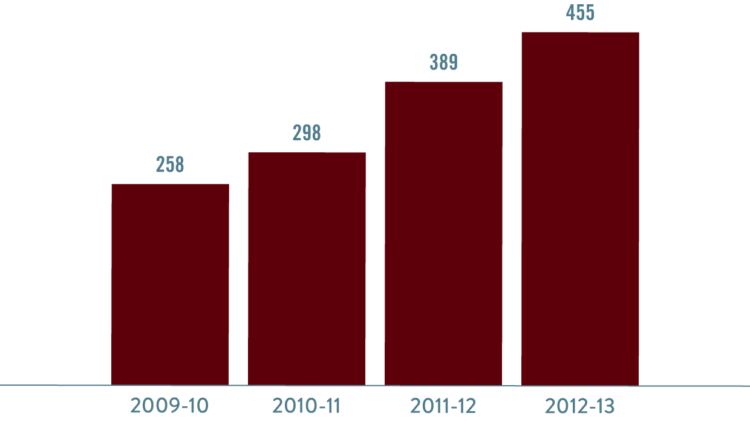


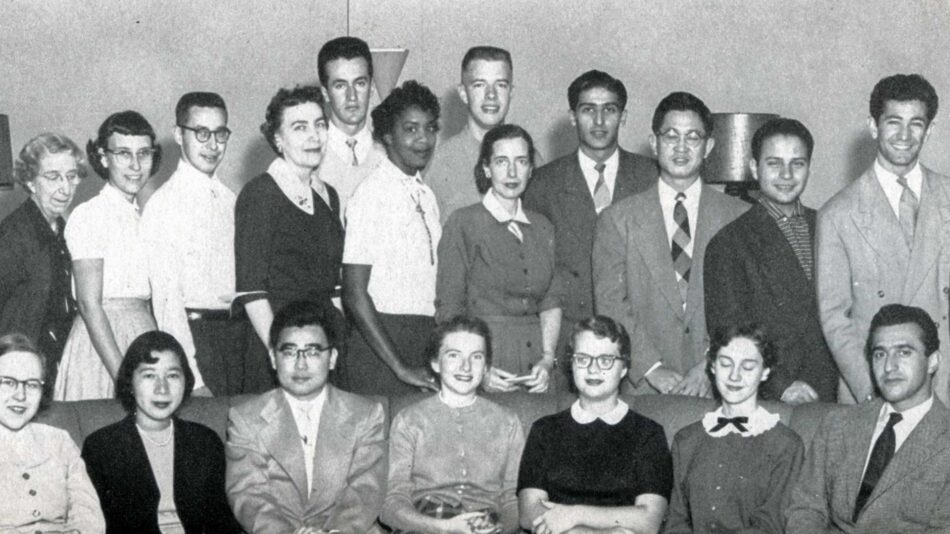
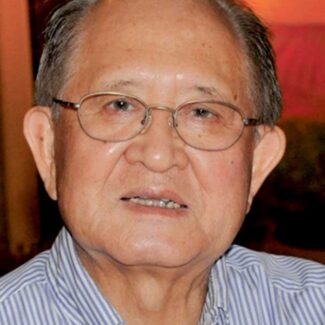
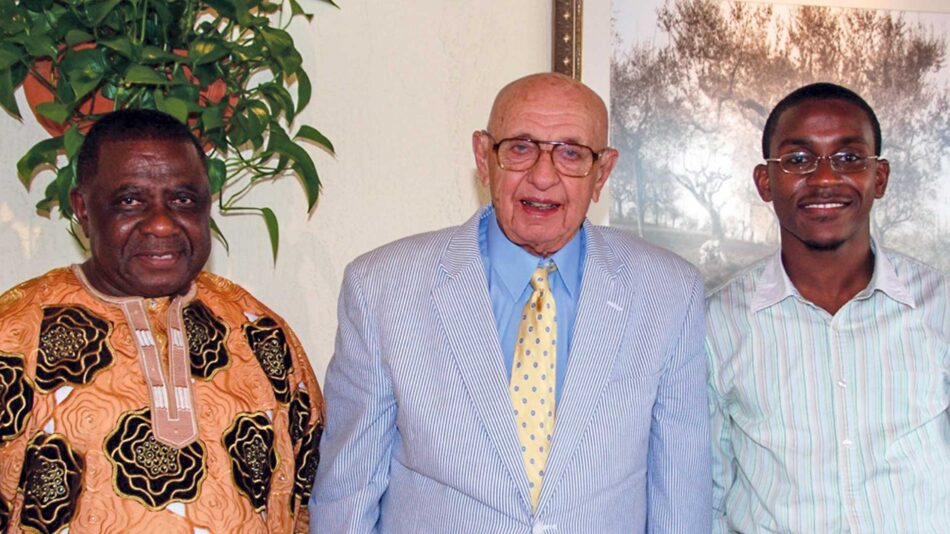
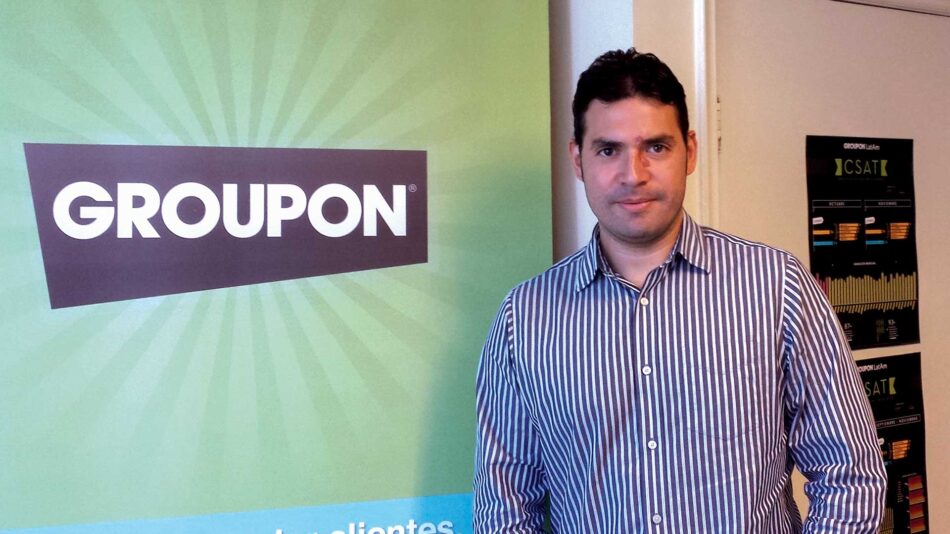
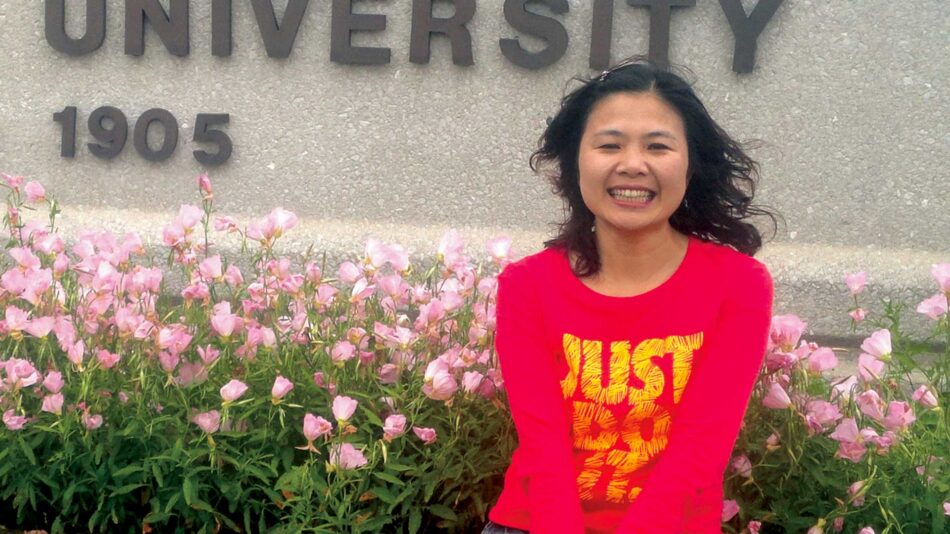
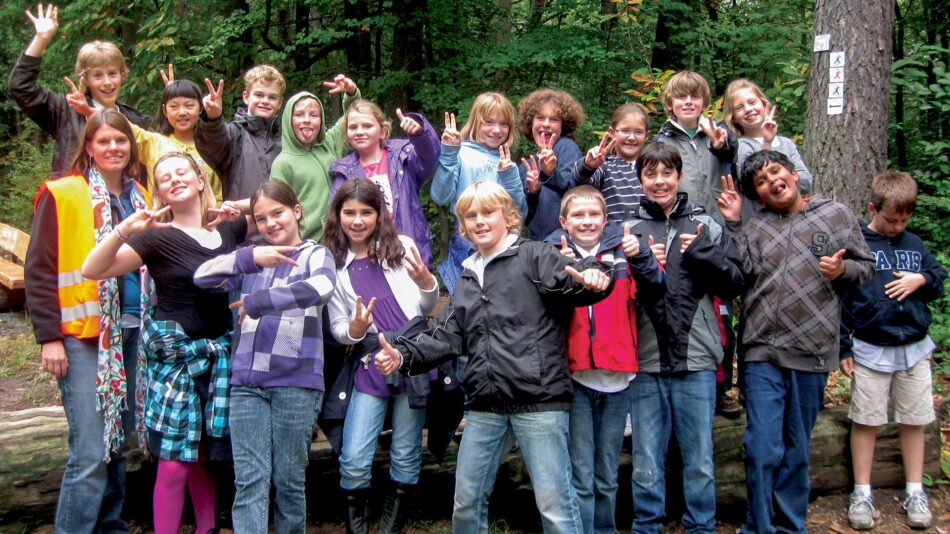
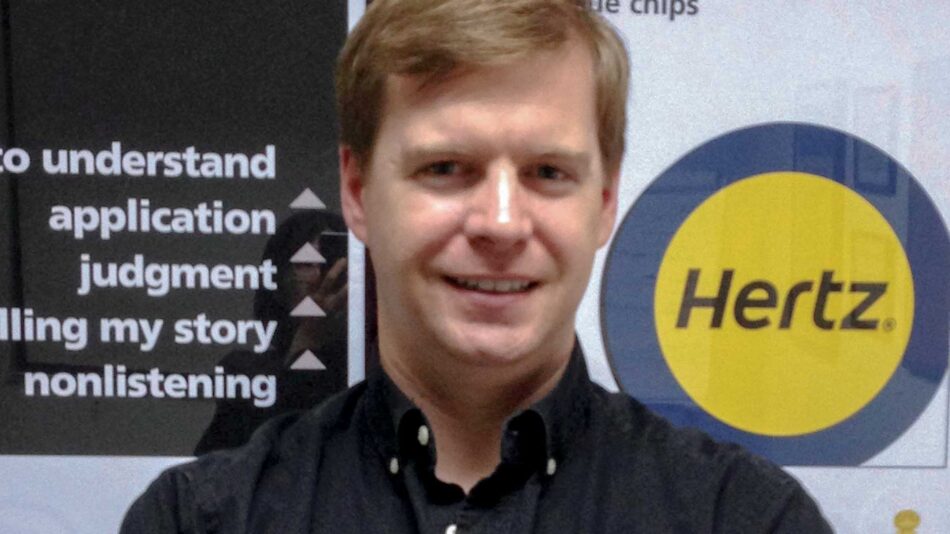
Leave a Reply